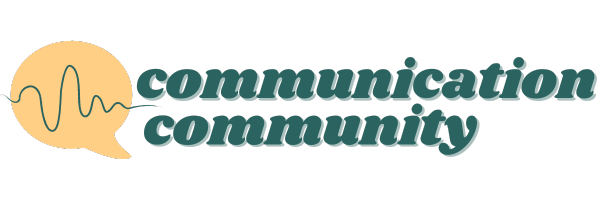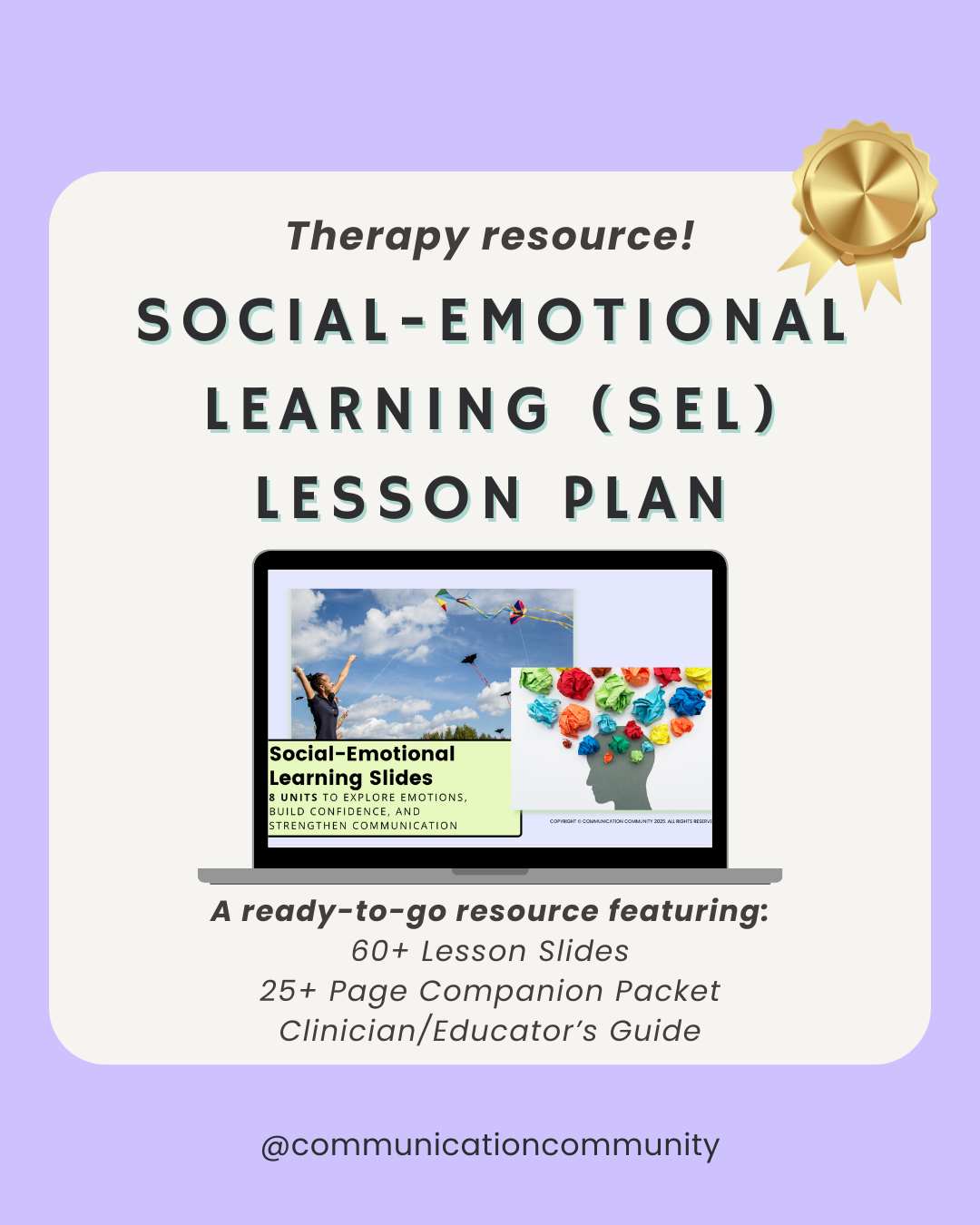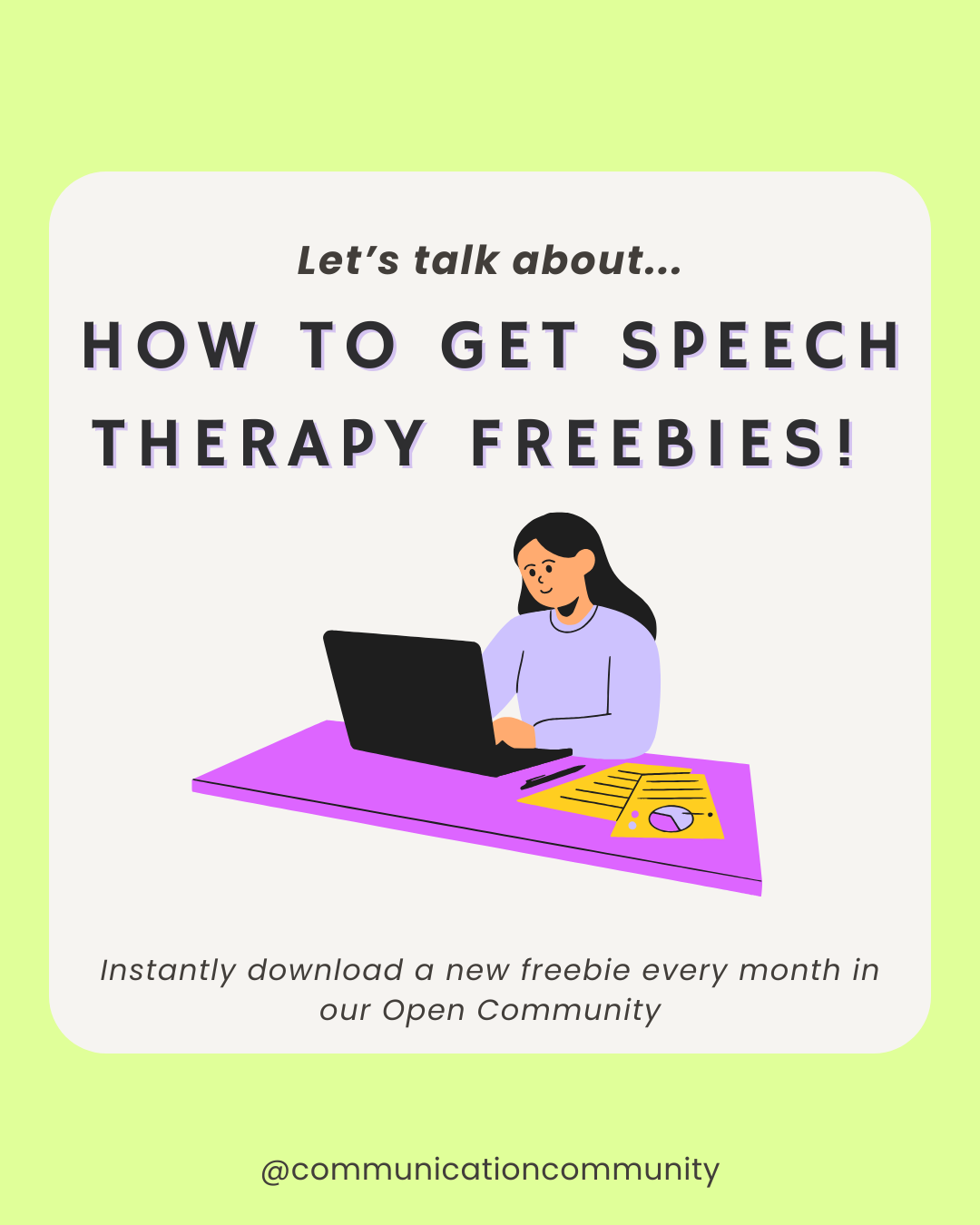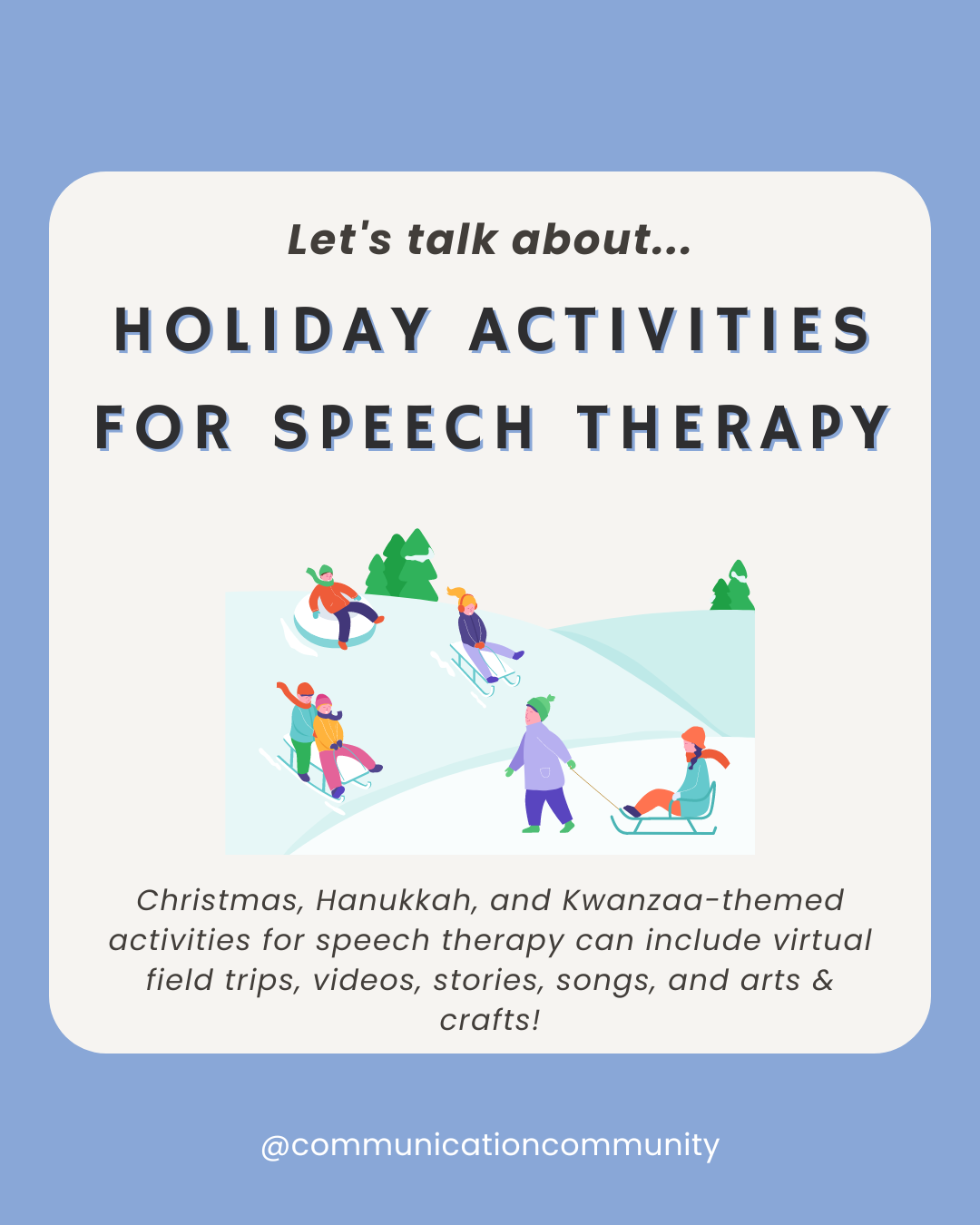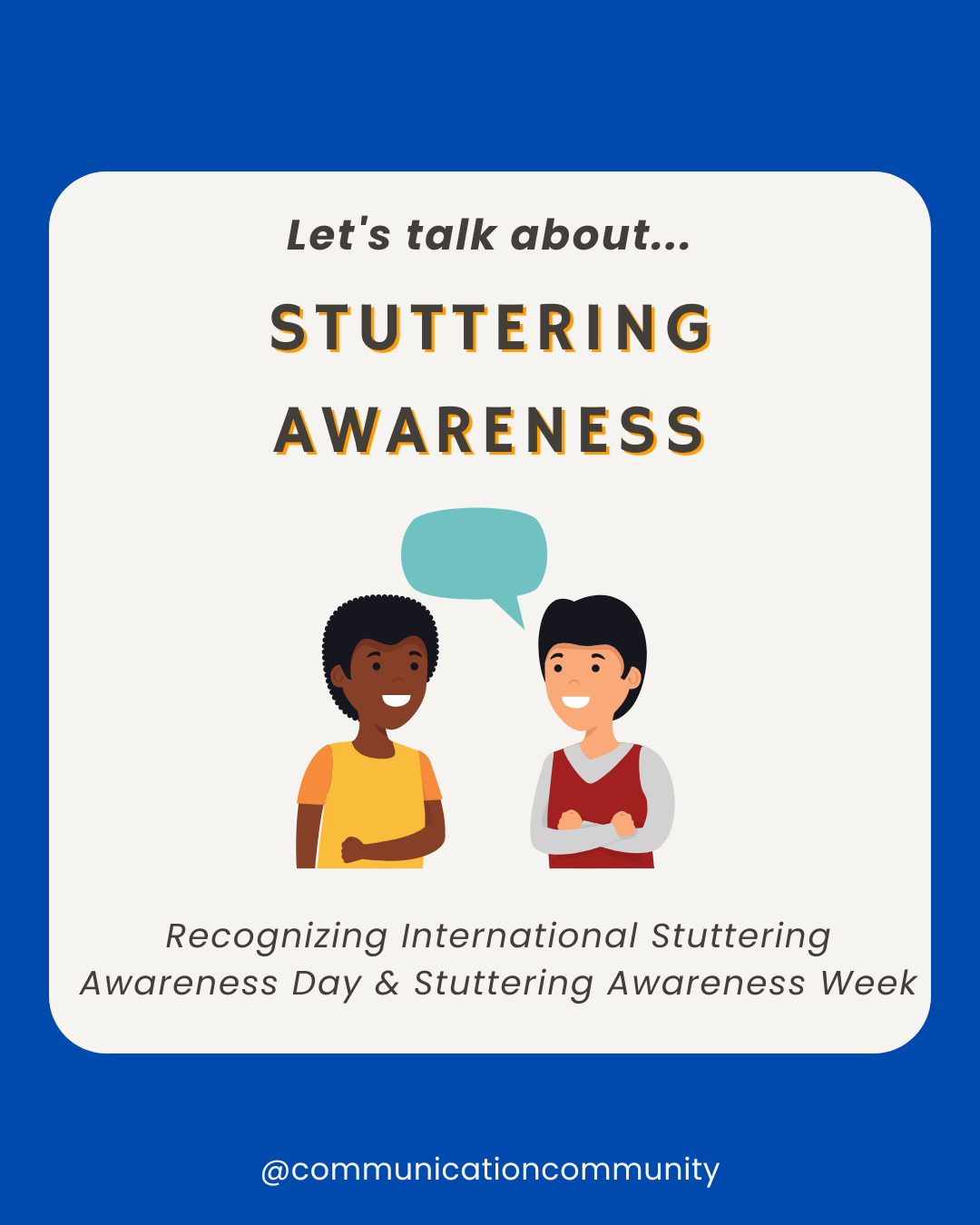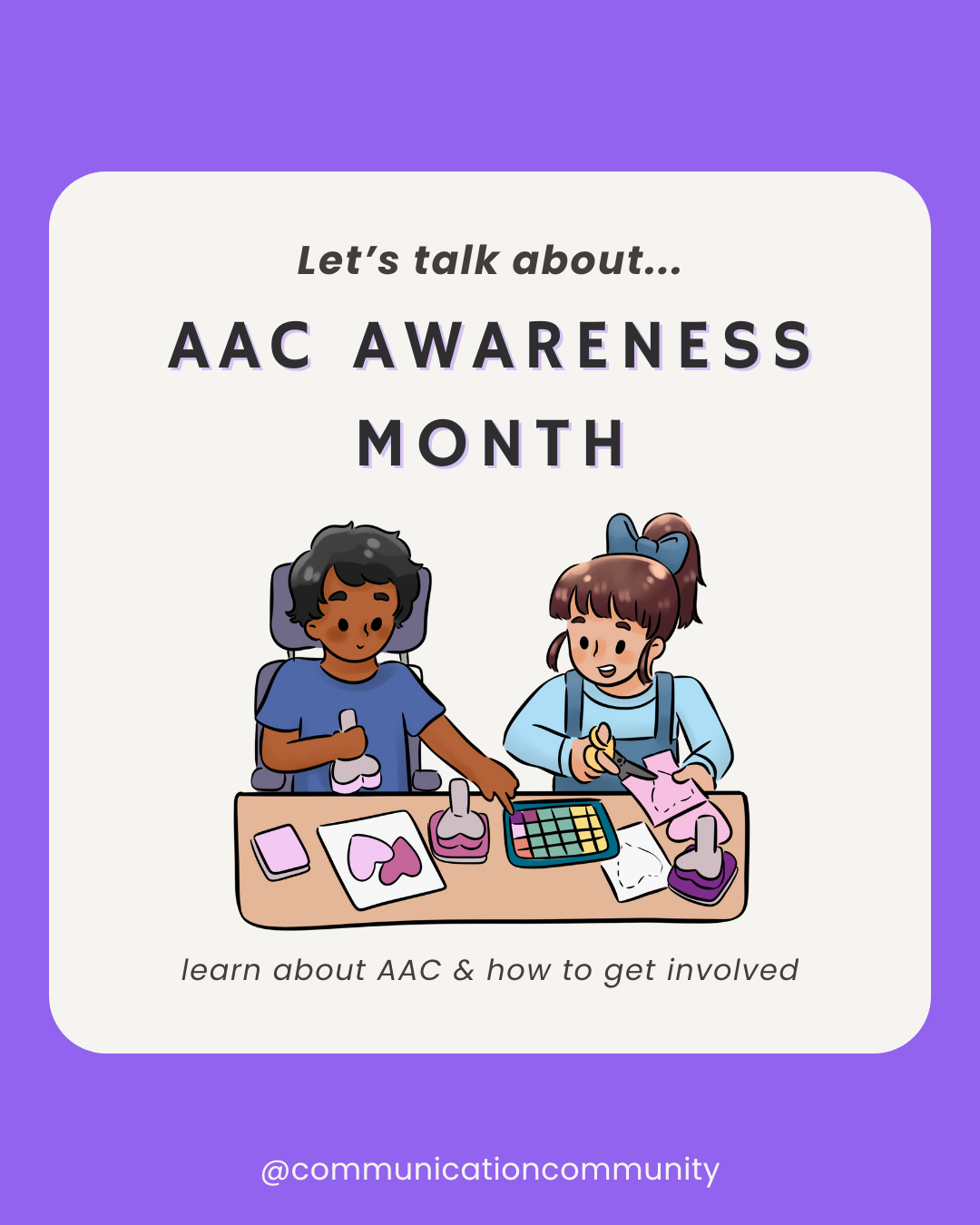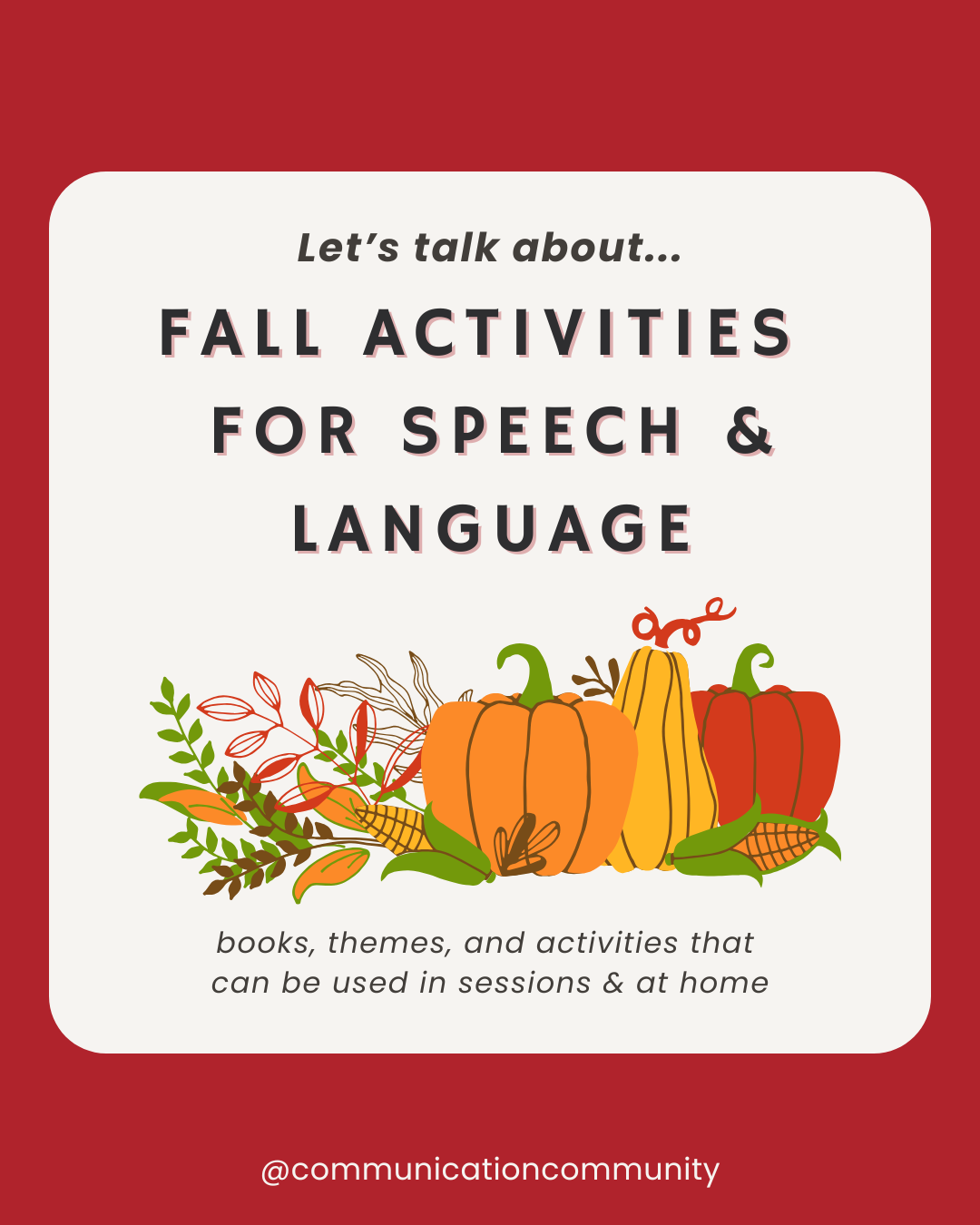The Importance of Social-Emotional Learning (SEL) in Schools and Therapy
What Is Social-Emotional Learning (SEL)?
Social-emotional learning (SEL) is the process of developing the skills we need to understand ourselves, connect with others, and navigate everyday challenges. These skills include recognizing and managing emotions, building healthy relationships, practicing perspective-taking, making responsible decisions, and using coping strategies to handle stressful situations.
In both classrooms and therapy settings, SEL is essential. When students learn how to understand emotions, communicate effectively, and apply coping strategies, they are better prepared not only for academics but for lifelong success.
Why SEL Matters for Students and Educators
SEL is more than just addressing problem behaviors or reducing stress - it’s about helping learners thrive. Research shows that students who participate in SEL programs demonstrate:
- Better academic outcomes
- Stronger emotional regulation
- Improved communication and problem-solving skills
- More positive relationships with peers and adults
For educators and therapists, SEL creates a more positive learning environment. When students feel supported and confident in their abilities, the overall climate of the classroom or therapy session improves - increasing connection and making teaching and learning more effective and enjoyable.
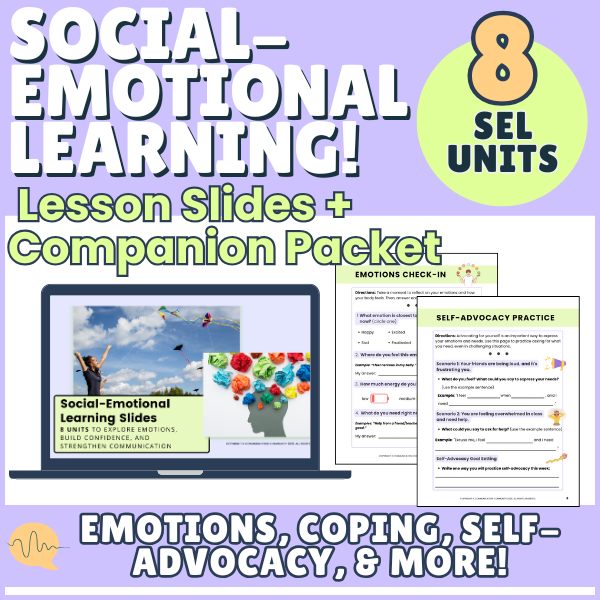
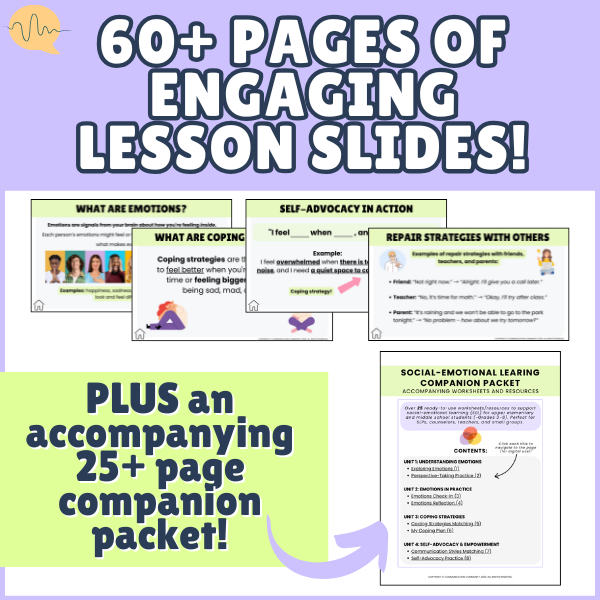
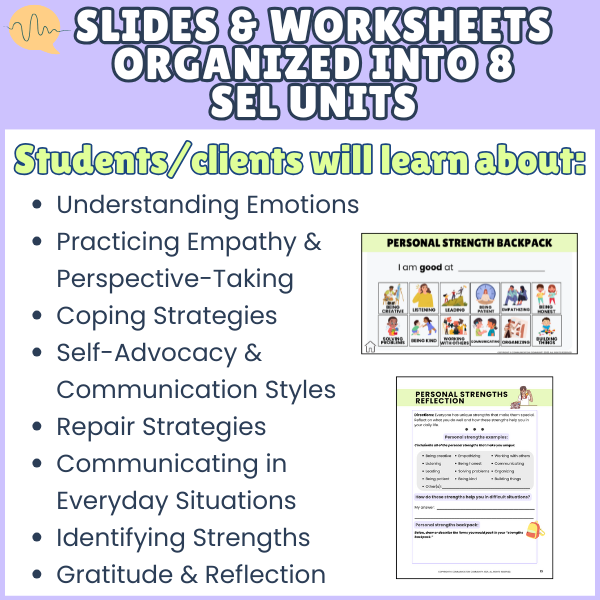
A Flexible SEL Lesson Plan for Schools and Therapy
⭐ Get it on TPT OR included with MANY other resources as a Premium Community member!
Designing SEL lessons that are structured, engaging, and adaptable can be challenging. That’s why we have very carefully created our Social-Emotional Learning Lesson Plan - a ready-to-use resource designed to save time while making SEL instruction meaningful.
What’s Included in the SEL Lesson Plan:
- 60+ Lesson Slides*
Organized into 8 SEL units: Understanding Emotions (including empathy & perspective-taking), Emotions in Practice, Coping Strategies, Self-Advocacy & Empowerment, Repair Strategies, Communicating in Everyday Situations, Understanding Personal Strengths, and Positive Thinking Toolbox - 25+ Worksheets & Resources
Includes 16 core worksheets PLUS extension activities and bonus tools like coping strategy cards, a gratitude tree, self-advocacy bingo, and SMART goals that align with each SEL unit. - Educator “How to Use” Guide
Offers practical tips and answer keys for objective worksheets, making it simple to implement lessons with confidence. - Interactive Navigation
Hyperlinked tables of contents in both slides and worksheets make it easy to jump to the materials you need.
*Access Canva-created slides through a one-click link (no account is required for access)! This presentation also comes with a PDF static copy for flexible use*
Why This SEL Resource Stands Out
Made by two speech-language pathologists (SLPs), this resource was carefully crafted to be...
- Flexible by age and skill level – Designed for grades 3–8, but can be adapted for younger or older learners.
- Neurodiversity-affirming – Focuses on strengths, inclusivity, and practical communication tools.
- Time-saving – Fully structured slides and worksheets, no extra prep required.
- Versatile use – Ideal for classrooms, small groups, or one-on-one therapy sessions.
- Goal-aligned – Includes a sample goal bank to align lessons with IEP or counseling objectives.
This SEL Lesson Plan is for...
- Speech-Language Pathologists (SLPs) supporting social communication and self-advocacy.
- School Counselors & Social Workers focusing on coping strategies and emotional wellness.
- Teachers & Special Educators integrating SEL into daily instruction.
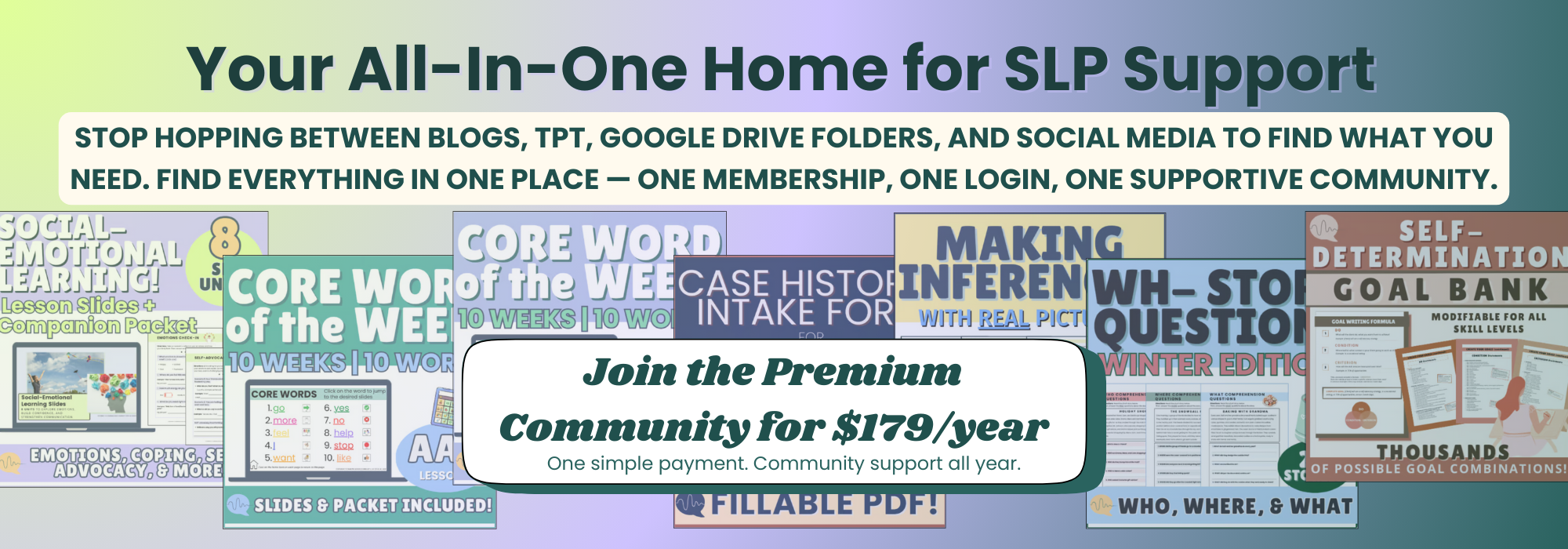
Final Thoughts
Social-emotional learning isn’t just an “extra” - it’s a foundation for building resilient, confident, and connected learners. By equipping students with emotional awareness, coping tools, and communication strategies, we give them skills that extend far beyond the classroom.
Our Social-Emotional Learning Lesson Plan provides everything you need to lead meaningful SEL instruction without hours of prep work. Whether you’re an SLP, counselor, or educator, you’ll find it flexible, practical, and ready to use.
References/Further Resources
Cipriano, C., Strambler, M. J., Naples, L. H., Ha, C., Kirk, M., Wood, M., ... & Durlak, J. (2023). The state of evidence for social and emotional learning: A contemporary meta‐analysis of universal school‐based SEL interventions. Child development, 94(5), 1181-1204.
Shankland, R., Haag, P., Tessier, D., Buchs, C., El-Jor, C., & Mazza, S. (2024). Review of the effects of social and emotional learning on mental health and academic outcomes: The role of teacher training and supportive interactions. Journal of Epidemiology and Population Health, 72(3), 202750.
